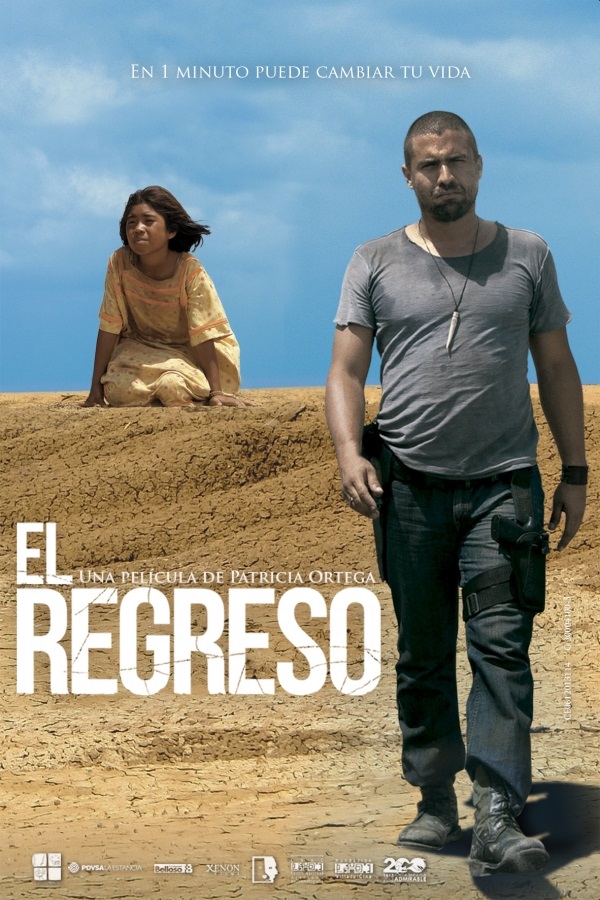By: Valerie Milano
Los Angeles, CA (The Hollywood Times) 7/9/24- Samantha Ramirez-Herrera, the talented director behind the documentary short EL Regreso, has crafted a touching narrative that delves deep into the immigrant experience. After its recent premiere at Dances with Films Film Festival THT had the opportunity to catch up with Ramirez-Herrera. During the interview she opens up about her inspirations, the intricate process of creating the film, the themes she aims to highlight, and her aspirations for the impact of her work.
 Inspiration and Personal Connection
Inspiration and Personal Connection
THT: Samantha, what inspired you to create EL Regreso? How does the subject matter relate to your personal journey as an immigrant and filmmaker?
Samantha Ramirez-Herrera: The inspiration for EL Regreso stems from my own life experiences. I moved from Mexico City to the United States when I was seven years old, and growing up as an undocumented immigrant, I constantly felt the fear of deportation and displacement. These personal experiences profoundly influence my storytelling. “EL Regreso” is my way of exploring and sharing the complex emotions of immigrants who, like me, are caught between two worlds. The film is a reflection of my journey and the journeys of many others who navigate the challenges of identity and belonging.
Research and Storytelling Process
THT: Can you describe the research and preparation process for making “EL Regreso”? How did you find and select the stories featured in the documentary?
 Samantha Ramirez-Herrera: The research process was both intensive and personal. I reached out to immigrant communities and listened to their stories, focusing on individuals whose experiences resonated with themes of identity, belonging, and the emotional impact of returning to a homeland that had become a distant memory. It was crucial to depict these experiences authentically and respectfully, which required building trust with the participants and creating a safe space for them to share their stories.
Samantha Ramirez-Herrera: The research process was both intensive and personal. I reached out to immigrant communities and listened to their stories, focusing on individuals whose experiences resonated with themes of identity, belonging, and the emotional impact of returning to a homeland that had become a distant memory. It was crucial to depict these experiences authentically and respectfully, which required building trust with the participants and creating a safe space for them to share their stories.
THT: What challenges did you face in depicting the experiences of the immigrants authentically and respectfully?
 Samantha Ramirez-Herrera: One of the biggest challenges was ensuring that the stories were portrayed with the depth and nuance they deserved. Avoiding sensationalism was key; I wanted to highlight their humanity and resilience. Another challenge was logistical, as filming across different locations and coordinating with individuals who have varying schedules and comfort levels with sharing their stories required meticulous planning and sensitivity.
Samantha Ramirez-Herrera: One of the biggest challenges was ensuring that the stories were portrayed with the depth and nuance they deserved. Avoiding sensationalism was key; I wanted to highlight their humanity and resilience. Another challenge was logistical, as filming across different locations and coordinating with individuals who have varying schedules and comfort levels with sharing their stories required meticulous planning and sensitivity.
Themes and Messages
THT: What are the key themes and messages you hope to convey through “EL Regreso” about the immigrant experience, especially regarding returning to one’s homeland after many years?
 Samantha Ramirez-Herrera: “EL Regreso” explores themes of identity, homecoming, and the emotional complexities of the immigrant experience. A crucial message is the duality of feeling both connected and alienated from one’s homeland. Many immigrants dream of returning, but the reality can be bittersweet as they often feel they no longer fully belong there. The documentary also touches on resilience and the enduring hope for a better future despite the challenges faced by immigrants. I hope to foster a deeper understanding and empathy among viewers by highlighting the strength and humanity of these individuals.
Samantha Ramirez-Herrera: “EL Regreso” explores themes of identity, homecoming, and the emotional complexities of the immigrant experience. A crucial message is the duality of feeling both connected and alienated from one’s homeland. Many immigrants dream of returning, but the reality can be bittersweet as they often feel they no longer fully belong there. The documentary also touches on resilience and the enduring hope for a better future despite the challenges faced by immigrants. I hope to foster a deeper understanding and empathy among viewers by highlighting the strength and humanity of these individuals.
Impact and Audience Response
THT: What impact do you hope “EL Regreso” will have on audiences, and how do you hope they will respond to the stories and themes presented in the documentary?
 Samantha Ramirez-Herrera: I hope “EL Regreso” will spark meaningful conversations about immigration, identity, and belonging. My goal is for audiences to gain a greater appreciation for the complexities of the immigrant experience and to see immigrants as real people with dreams, fears, and hopes. If the documentary can foster empathy and inspire action toward more compassionate immigration policies, it will have achieved its purpose.
Samantha Ramirez-Herrera: I hope “EL Regreso” will spark meaningful conversations about immigration, identity, and belonging. My goal is for audiences to gain a greater appreciation for the complexities of the immigrant experience and to see immigrants as real people with dreams, fears, and hopes. If the documentary can foster empathy and inspire action toward more compassionate immigration policies, it will have achieved its purpose.
Advice for Filmmakers
THT: As a filmmaker addressing social justice issues, what advice or insights can you offer to other filmmakers who are looking to tell impactful stories about marginalized communities?
 Samantha Ramirez-Herrera: My advice is to approach storytelling with authenticity and respect. Listen to the communities you’re portraying and involve them in the process. Build trust and ensure that their voices are heard and represented accurately. Avoid exploiting their stories for dramatic effect; instead, focus on their humanity and resilience. Be prepared for challenges and criticism but stay true to your vision and purpose. Storytelling has the power to create change, so use it responsibly and thoughtfully.
Samantha Ramirez-Herrera: My advice is to approach storytelling with authenticity and respect. Listen to the communities you’re portraying and involve them in the process. Build trust and ensure that their voices are heard and represented accurately. Avoid exploiting their stories for dramatic effect; instead, focus on their humanity and resilience. Be prepared for challenges and criticism but stay true to your vision and purpose. Storytelling has the power to create change, so use it responsibly and thoughtfully.
Future Projects and Evolution
THT: Can you share any future projects you have in mind that continue to explore themes of immigration and identity? How do you see your work evolving in the future?
 Samantha Ramirez-Herrera: I’m currently working on a new project that explores the impact of immigration policies on families and children. It’s a subject close to my heart, and I believe it’s crucial to shed light on these stories. In the future, I see my work continuing to evolve toward more inclusive and diverse storytelling. I want to amplify marginalized voices and create content that not only entertains but also educates and inspires change. The journey of an immigrant is ongoing, and there are countless stories yet to be told.
Samantha Ramirez-Herrera: I’m currently working on a new project that explores the impact of immigration policies on families and children. It’s a subject close to my heart, and I believe it’s crucial to shed light on these stories. In the future, I see my work continuing to evolve toward more inclusive and diverse storytelling. I want to amplify marginalized voices and create content that not only entertains but also educates and inspires change. The journey of an immigrant is ongoing, and there are countless stories yet to be told.
Samantha Ramirez-Herrera’s “EL Regreso” is more than just a documentary; it is a heartfelt exploration of identity, belonging, and the immigrant experience. Through her work, Ramirez-Herrera invites audiences to empathize with the emotional journeys of immigrants and to understand the complexities they face. Her dedication to authentic storytelling and social justice shines through in every frame of “EL Regreso,” making it a must-watch for anyone interested in the human side of immigration.






